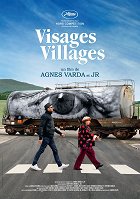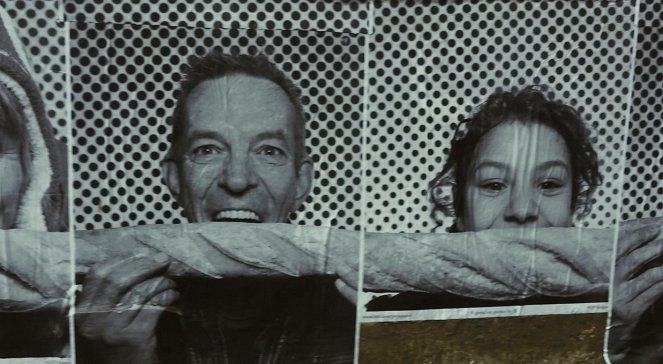Musique:
Matthieu ChedidRésumés(1)
Agnès Varda et JR ont des points communs : passion et questionnement sur les images en général et plus précisément sur les lieux et les dispositifs pour les montrer, les partager, les exposer. Agnès a choisi le cinéma. JR a choisi de créer des galeries de photographies en plein air. Quand Agnès et JR se sont rencontrés en 2015, ils ont aussitôt eu envie de travailler ensemble, tourner un film en France, loin des villes, en voyage avec le camion photographique (et magique) de JR. Hasard des rencontres ou projets préparés, ils sont allés vers les autres, les ont écoutés, photographiés et parfois affichés. Le film raconte aussi l'histoire de leur amitié qui a grandi au cours du tournage, entre surprises et taquineries, en se riant de leurs différences. (Le Pacte)
(plus)Critiques (1)
Visages, villages is a celebration of the French countryside, teamwork and street art. With her fifty-years-younger and thirty-centimetres-taller colleague, Agnès Varda visits places that tell stimulating stories (about people, unemployment, the transformation of the landscape and the demise of the countryside) and allows them to speak by means of large-format photographs. The people they encounter are both the objects and co-creators of their works. They are not primarily interested in isolation, devastation and industrialisation, but rather in the joy of life and the possibility of creative comprehension of reality. They do not want to criticise and do not seek systemic solutions to problems; as conceptual artists, they “only” change the optics through which we view the world around us. Although they are separated by two generations, both of them have their own unrelenting enthusiasm and desire to discover and create. They always respond to the particular environment and intersperse the stories of others with their own (an eye examination, a running gag with sunglasses, excerpts from Varda’s earlier films), which appealingly lends an improvisational and unpredictable character to the film, which could have turned out to be a monotonous series of site-specific stopovers. The film culminates with a “meeting” with Godard that takes the trajectory of the narrative in a completely unexpected direction, which, however, Varda is able to use to the film’s benefit. Her reaction is another expression of the central theme of the documentary – how we see things (people, walls, buildings, ports) is more important than what they actually are. Agnès Varda’s perspective is empathetic, playful and joyful and without a hint of falseness, which makes Visages, villages one of the best feel-good films of recent years. 90%
()

